The merits, faults and futures of specialized departments
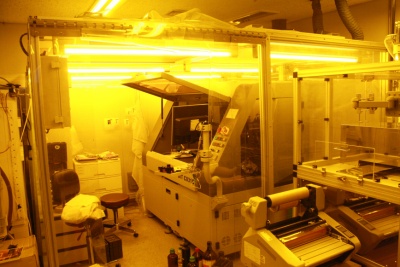
LEE TOOK his College Scholastic Ability Test (CSAT), also called the sooneung last November. After receiving his score report, he started applying to universities that corresponded to his exam score. Imagining a bright university life the following year, he skimmed through the list of schools and found a department with a unique name that he had never heard of. After searching the university's website, he discovered that it is a "specialized department" that was recently established. Students in this major receive benefits such as scholarships or chances to study abroad. In addition, it guarantees students' employment after graduation through practical education. Considering these advantages, Lee pondered whether he would apply for this "special" department which belongs to a mid-class university or the "ordinary" departments of privileged universities. University applicants these days have similar distress just like that of Lee. Such a phenomenon signifies Korean universities' efforts to attract outstanding students and raise the overall quality of university education by virtue of specialized departments.
The reason for establishing specialized departments
Specialized departments generally refer to "a department established within the last four or five years to develop new areas of study or to merge existing subjects in the fields of applied studies." Business Administration, Life Science, and High-tech Industry are primary areas that are covered by these majors. Newly established courses aim to foster professionals who have executive abilities in a certain field.
Back in 2004, the number of Korean universities grew a lot (419: including community colleges and four-year universities) and the college entrance rate (82.1%) was high, but the quality of university education was far behind when considering world ranking and indexes like "citation per paper". In addition, the competition among universities to attract students became more intense as the number of newly enrolled students was expected to decrease due to low birth rates. Companies also required talented people who could be put into workplaces right after recruitment. To respond to these issues, the government established the University Specialization Project in 2004, which was the foundation for today's specialized departments. The main point of the project was to merge diverse studies and increase the number of researchers and theses through government support. Therefore, Korean universities started setting up specialized departments.
New majors have gained popularity as they not only focus on practical studies but also offer exceptional advantages such as a full scholarship or a guarantee of employment. Therefore, many students select such departments due to various kinds of benefits rather than simply considering university rankings as shown in <Table 1>. "Some students in our specialized department were admitted to 'SKY' universities* simultaneously, but finally chose our department. I think they preferred tangible advantages like scholarships to the history of the department or social reputation of the university," says Kim Hyun-jung (Soph., Dept. of Global Business Admin., Sungkyunkwan Univ.).
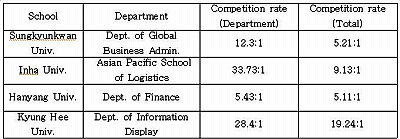
<Table 1>
*SKY universities: "SKY" is an abbreviation of Seoul National University, Korea University, and Yonsei University. Because of their long history and superior graduates, these three have been recognized as the most prestigious universities in Korea, which only students with the highest CSAT scores can enter.
Exemplary universities with specialized departments
*Dept. of Packaging, Yonsei University (Wonju Campus) (2002~)
- The first four-year educational institution of packaging science to meet the needs of relevant market in Korea, reaching around $16 trillion.
- Curricula consist of both Material Science and Marketing to pack products scientifically and attract consumers. Manufacturing process of groceries and medicine is also included.
- 15-20% of graduates go on to domestic or foreign graduate schools, while others get a job in packaging departments with various companies producing food, cosmetics, or pharmacy.
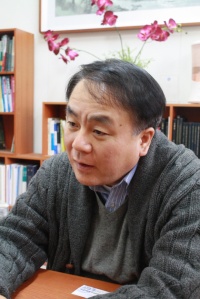
"Packaging has become a great part of adding value to a product. It not only requires scientific knowledge but also liberal arts to read the consumer's mind and apply it to packaging." -Kim Jai-neung (Prof., Dept. of Packaging, Yonsei Univ.)
*Dept. of Global Business Admin., Sungkyunkwan University (2008~)
- It provides all courses in English to help students gain global perspectives on business and international relations.
- Every student is given a Samsung scholarship that supports half or full tuition for four years.
- Curricula generally follow those of Kelley School of Indiana State University, a prestigious business school in the United States.
- Thirty students in each year are given a chance to study abroad for four semesters at Kelley School and receive a dual degree.
*Asian Pacific School of Logistics, Inha University (2004~)
- Established with the purpose of developing talent in logistics to support the government's plan to establish Korea as the economic hub of Northeast Asia.
- Logistics is the management of goods, involving the integration of transportation, inventory, etc. Controlling the flow and storage of goods is an important role of logistician. Students study various subjects such as statistics and computer programming.
- Graduates mainly work in the fields of manufacture, airline, and marine transportation.
- Students receive assistance from professors with preparing for certifications such as Certified Professional Logistician (CPL).
*Dept. of Information Display, Kyung Hee University (2004~)
- The first display education institution in the world established in order to satisfy the growing needs of display industry.
- Curricula include basic knowledge of chemistry, physics, electronic engineering, and the manufacturing process of display devices*.
- Students are given a chance to study at Ecole Polytechnique, France, a world-class institute of technology where only 0.01% of the entire university applicants can go in France.
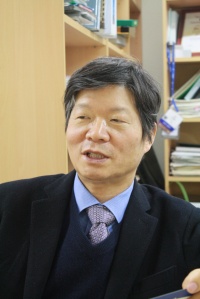
"Korea has become the leading country in producing displays like Liquid Crystal Display (LCD). I hope that our courses contribute to producing talented individuals who will take the lead in the global display market, which occupies 10% of the entire industry." -Jang Jin (Prof., Dept. of Information Display, Kyung Hee Univ.)
* display device: an output device for presentation of information for visual, tactile, or auditory reception stored and transmitted in various forms. Common applications are TV or computer monitors. (Wikipedia)
Weaknesses concerned with specialized departments
Although specialized departments seem advantageous considering the substantial support by universities, some critical problems have been noticed. Specialized departments create an imbalance between studies as they mainly focus on the practical aspects and fail to develop the rest. Also, the number of applicants for departments in liberal arts or social science, which are fundamental studies, gradually decreases because they are seemingly of no use to be employed anymore. Moreover, the original function of university, pioneering new areas of study and growing intellectuals, is collapsing as more specialized courses provide education only useful for a specific job. Universities should realize that what they intend can be achieved only when specialized departments as well as other related departments grow simultaneously. "In case of Hanyang University, it recently introduced 'converged humanities', which added scientific knowledge to liberal arts. It is important to connect the specialized part with other majors to achieve a balanced development of studies, but this is hardly seen in Korean universities," says Ryu Han-gu (Associate Research Fellow Ph.D., Korea Research Institute for Vocational Education & Training).
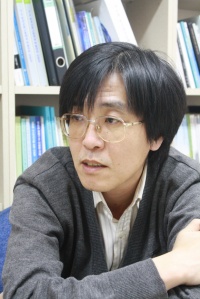
There are also criticisms that universities' recent movement aggressively pursuing students who are able to enter top-ranking schools with various advantagesis nothing but a short-term solution for elevating the quality of the university. However, Ryu adds, "This phenomenon is natural because it is related with a chronic problem of society as well as universities. 'SKY' graduates are blindly regarded as knowledgeable and competent. In addition, school connections are still considered important in Korean society so that 'SKY' graduates are preferred over other university graduates in the job market. Universities other than 'SKY' feel compelled to show successful examples through specialized departments in order to overcome this situation."
Since those who major in special courses receive "special" treatment by school authorities, students in other similar majors naturally feel excluded. This results in dissatisfaction by other students. "All students majoring in Global Business Admin. are exempt from paying half the tuition if they maintain a certain GPA, while students in other departments have to study very hard to receive the same amount of scholarship. We also have difficulties in finding a place to live near school, but students in specialized departments are provided with dorms even if they live in Seoul," says Kim D.S. (Jr., Dept. of Business Admin., Sungkyunkwan Univ.). Meanwhile, students in specialized departments also have their own troubles because their futures are narrowed to specific fields at too early an age before determining whether their major suits them.
A desirable future for specialized departments
Establishing specialized departments is not a simple matter of making profits, since it could have a huge impact on the entire university system. It is important to develop specialized departments with a far-sighted plan. "Along with the flow of time, popular departments have changed continuously. When the shipbuilding industry was flourishing, some regional universities rushed to cultivate the Dept. of Naval Architecture. However, it has lost its popularity lately due to the recession in the industry. As this shows, rather than simply following the trend of current times, it is necessary to look further into the future," says Kim Jae-sam (Researcher, Korea Higher Education Research Institute).
There are exemplary universities in developed countries which achieved a strong educational-industrial collaboration based on specialized studies. University College London (UCL), England, conducts 150 researches in which several fields converge. They pursue the interchange of studies by letting students choose whatever they want to study among 70 different subjects. At Trinity College Dublin, Ireland, it has five areas of specialized studies. For university-industry collaboration, Trinity College Dublin has a system called Trinity Research and Innovation (TRI), which helps commercialize research and support new businesses.
* * *
Specialized departments seem unstable so far, considering their short history and accompanying drawbacks. However, most students who entered specialized departments have pride in their departments. "Although I was doubtful about my choice at first, I have high expectations for the school now, since it has provided students with satisfactory curricula and programs," says Kang (Soph., Asian Pacific School of Logistics, Inha Univ.). On behalf of the students, who are the main beneficiaries of university education, universities should take a broad view and develop them in a way that satisfies both academic and practical aspects.

